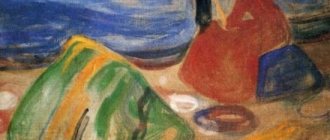Types of temperament are a combination of subjective characteristics of an individual’s personality, which have stability and a certain degree of innateness, associated with dynamic manifestations rather than meaningful ones. They are the basis for the development of the subjective character of the individual. Types of temperament are determined by the typology of higher nervous activity of subjects and reflect the emotional sphere of individuals.
Temperament types reflect all psychological and physiological activities of a person. The ancient physician K. Galen was the first to identify types of temperament. He divided four main types of temperament, depending on the predominance of one or another juice (for example, bile) in the human body.
The basis of personality
Temperament is a certain biological basis on which personality is built. Temperament determines the mechanisms of psychological activity and the ability to socially adapt. On its basis, social properties of the psyche are formed. From a physiological point of view, temperament is a type of higher nervous activity.
Scientists consider Hippocrates to be the father of the theory of human temperament. Later, the philosopher and physician Claudius Galen developed this theory and became the author of the scientific treatise “Correct Measure.” This work describes four types of temperament according to basic biological substances. Blood plays a key role in the formation of the sanguine type. For a choleric person, the main substance is bile. The phlegmatic type develops under the strong influence of phlegm. And melancholic in a person is determined by the so-called “black bile”.
No type of temperament is found in its pure form. Every person has a basic temperament, developing or suppressing it depending on circumstances. In different situations, the same person is capable of exhibiting traits of all four types.
Description of types
Each personality type is special and individual. Next, we will consider a brief description, advantages and disadvantages of each type of temperament.
Sanguine
A personality type that is characterized by flexibility of thinking and pliability.
Anticipation of something new or unreasonable fear of the future can indicate a good sixth sense. But it doesn’t always “work like a clock” - in the article “How to develop intuition?” You can find several clever tricks for opening the “third eye”.
A cheerful and active sanguine person quickly gets along with people and knows exactly what he wants from life. Such a person cannot sit still and is extremely skeptical about monotonous work. A sanguine person switches quite easily from one type of activity to another, and almost always succeeds in any endeavor.
Such a person is easily given control over emotions, he easily meets new people and is always open to communication. Facial expressions and speech are very expressive; a sanguine person loves and knows how to speak in public.
Advantages:
- The sanguine type of temperament is characterized by cheerfulness, energy, cheerfulness, and responsiveness.
- The mood tends to change frequently, but generally a good mood prevails.
- Feelings of affection, hostility, joy and grief arise quickly in sanguine people, but they are shallow.
- Quickly grasps everything new and interesting.
- Quickly switches from one type of activity to another.
- He easily experiences his failures and troubles.
- Easily adapts to various life circumstances.
- Has good performance and endurance.
- He takes on any new business with enthusiasm.
- Characterized by loud, hasty, but at the same time clear speech, accompanied by active gestures and expressive facial expressions.
- When communicating with new people, he does not feel fear or constraint.
- Maintains self-control in stressful, critical situations.
- He is able to defend himself with arguments and at the same time tries to normalize the situation.
- Quickly wakes up and falls asleep.
- Shows persistence in achieving the assigned task and goal.
- Good organizer.
Flaws:
- If a sanguine person loses interest in the work he has started, then he abandons it without completing it.
- They don't like monotonous work.
- They tend to overestimate both themselves and their capabilities.
- The sanguine type is characterized by instability in interests and inclinations.
- A person with a sanguine type of temperament finds monotonous, everyday painstaking work a burden.
- Hasty in decisions, rash decisions, not collected.
- Unstable mood.
- It is difficult to develop strong-willed qualities.
To achieve success in their activities, sanguine people should not waste time on trifles; they need to be purposeful, careful, and diligent.
Phlegmatic person
Calm and measured, slow and absolutely balanced phlegmatic people are distinguished by their slowness and perseverance. They always clearly think through their every action, bringing everything they start to its logical conclusion. They are not used to giving in to difficulties and often become successful businessmen.
They are not used to showing off their feelings, for which they often receive the status of “cold” and “heartless.” Phlegmatic people are always in a stable mood and rarely succumb to external provocations.
Advantages:
- The phlegmatic type of temperament is characterized by calmness, composure, prudence, caution, patience, perseverance, balance and endurance, both in ordinary life and in a stressful situation.
- Shows consistency and thoroughness in his work, as a result of which he brings the work he begins to completion.
- Persistent and tenacious in achieving their goals.
- Phlegmatic people do not have a tendency to affect.
- Speech is calm, measured with pauses, without clearly expressed emotions, without gestures or facial expressions.
- Phlegmatic people are not talkative.
- Able to perform monotonous, long-term intense work.
- He calculates everything and does not waste his energy in vain.
- She adheres to a systematic approach to her work.
- They tend to adhere to the established, familiar routine of life.
- Follows the routine with ease.
- He has good endurance, which easily allows him to restrain his impulses.
- Not vindictive.
- Treats barbs directed at him condescendingly.
- Characterized by constancy in relationships and interests, they are often monogamous.
- They love order and neatness in everything.
- In phlegmatic people, reason prevails over feeling.
- They communicate well with people of other temperaments.
- Has a good memory.
- Phlegmatic people are reliable people who are difficult to anger.
- The feelings of phlegmatic people are deep, but carefully hidden from prying eyes.
Flaws:
- Phlegmatic people are practically not susceptible to approval and censure addressed to them.
- They react poorly to external stimuli, so they cannot quickly react to new situations.
- Stingy with emotions.
- The facial expressions and movements of a phlegmatic person are inexpressive and slow.
- Thorough to the point of being boring.
- He starts work slowly and just as slowly switches from one task to another.
- Has difficulty adapting to a new environment and is slow to get along with new people.
- There are many stereotypes and patterns in life.
- Unresourceful.
Phlegmatic people should develop the qualities they lack, such as mobility and activity. Avoid the manifestation of such qualities as: inertia and lethargy.
Choleric
The choleric type of temperament is characterized by decisiveness, initiative, and straightforwardness. Mental processes proceed too quickly, which makes people with this temperament somewhat unbalanced and abrupt. They are often unrestrained and hot-tempered, easily losing their temper even over trifles.
When communicating with a choleric person, you should be prepared for his irritability and impetuosity - people of this type can, in an emotional outburst, say nasty things that they will regret in a couple of seconds.
Advantages:
- Agile and fast.
- He gets down to business with passion, works on the rise, overcoming difficulties.
- Almost always resourceful in an argument.
- Forgiving and non-offensive.
- Has expressive facial expressions.
- The speech is lively and emotional.
- Able to quickly make decisions and act.
- Tirelessly strives for something new.
- He quickly falls asleep and wakes up, sleeps soundly.
- In a critical situation, he shows determination and drive.
- Feelings quickly arise and manifest themselves clearly.
Flaws:
- The choleric person is too hasty.
- The choleric type of temperament is characterized by sharp, impetuous movements, restlessness, imbalance, and a tendency to get hot.
- Not very patient.
- In relationships and in communicating with people, he can be harsh and straightforward.
- May provoke conflict situations.
- Stubborn, often capricious.
- Characterized by a sharp rise and rapid decline in activity, i.e. The choleric person works in fits and starts.
- Sometimes he does not delve into the essence of the problem, skims the surface, and gets distracted.
- Prone to risky behavior.
- Choleric people's speech is fast, sometimes confused, and passionate.
- Aggressive, very hot-tempered and uncontrollable.
- Prone to sudden mood swings and nervous breakdowns.
- When his energy supply is depleted, his mood plummets.
- Intolerant of the mistakes and shortcomings of others.
- Touchy.
Cholerics need to learn to restrain themselves and not be arrogant. They may be advised to count to ten before reacting to a situation.
Melancholic
People with a weak nervous system are very vulnerable and vulnerable. They are often offended and take any criticism personally. They take failures very hard and reproach themselves for mistakes in life for a long time. They love to be pitied and look for protectors among stronger individuals.
In the life of a melancholic person, everything is always bad - even if there are a lot of good people nearby, there is a good job and the house is full of prosperity, the melancholic person will find a reason to be sad.
Everything new puts people of this type into a stupor - spontaneous solutions to problems are alien to them, and if something does not go according to plan, it immediately leads melancholic people astray.
Advantages:
- The melancholic type of temperament is characterized by increased sensitivity.
- Melancholic people are able to perceive approval and censure.
- Makes high demands both on himself and on the people around him.
- They feel good about other people.
- Under favorable conditions, they are restrained and tactful.
- The emotional states and feelings of people with a melancholic type of temperament are distinguished by their depth, duration and great strength.
- Melancholic people are characterized by constancy and depth, acute susceptibility to external influences.
- In a familiar and calm environment, people with a melancholic type of temperament feel calm and work very productively.
Flaws:
- Melancholic people are distinguished from other types by their high emotional sensitivity.
- They have a hard time withstanding grief and resentment, although this may not appear outwardly.
- They keep their thoughts and experiences to themselves.
- Even minor failures are greatly experienced.
- Very shy, shy, vulnerable, secretive, indecisive, unsure of himself and his abilities.
- Always pessimistic, rarely laughs.
- At the slightest failure he feels depressed and confused.
- In an unfamiliar environment, he gets lost.
- A melancholic person is embarrassed when contacting new people.
- It takes a long time to adapt to a new team.
- Has a small circle of close people.
- Melancholic people have a tendency to loneliness, depression, suspicion, they become isolated and withdraw into themselves.
- They get tired quickly and need to take breaks while working.
- The melancholic type of temperament is characterized by weak, quiet speech up to a whisper, impressionability to the point of tearfulness, excessive touchiness and tearfulness.
- The slightest trouble or nervous environment at work can throw a melancholic person out of balance.
- Under unfavorable conditions, melancholic people are withdrawn, fearful, and anxious.
- Melancholic is the only type of temperament characterized by slight vulnerability and touchiness.
- Prefers to obey rules and authorities.
- On the eve of important events, he is always overly worried and worried.
- What a choleric person sweeps away on his way, a phlegmatic person does not notice, and a sanguine person bypasses, becomes an obstacle for a melancholic person. He gets lost, gives up, and it is at such moments that he needs sympathy and support from family and friends.
In terms of self-improvement and self-realization, melancholic people need to be more active, engage in organizational activities in order to feel their importance, confidence and increase self-esteem. This is also facilitated by physical education and sports, gymnastics.
Properties of temperament
Each type of temperament is determined by the presence of specific properties, namely:
Extraversion and introversion
These qualities are based on emotional reactions, on the speed of volitional actions.
Activity and passivity
These properties show a person’s reaction to negative events and difficulties, and also determine the degree of his endurance, perseverance and determination.
Sensitivity
It manifests itself in the strength of the influence of external stimuli that force the psyche to react in one way or another. Different people react to the same event in completely different ways.
Reactivity
This term refers to an involuntary reaction of the psyche to irritating factors (they can be both external and internal).
Plasticity and rigidity
These qualities show a person’s ability to adapt to the environment and adapt to new circumstances.
Reactive Activity Rate
This property determines how quickly the psyche reacts to external stimuli.
Emotional excitability
Using this property, you can determine how much a person is able to control his emotions, speech and mental reactions.
General information
The concept of “temperament” was first introduced by the ancient Greek doctor Hippocrates. His theory of 4 types of personality is based on the predominance of one or another liquid in the body or, as the scientist called it, “vital juice.”
Accordingly, based on this hypothesis, 4 main personality types were identified:
- choleric - predominance of bile (from other Greek chole - bile);
- sanguine - predominance of blood (from Latin sanguis - blood);
- phlegmatic - predominance of phlegm (from other Greek phlegma - phlegm, “phlegm”);
- melancholic - predominance of black bile (from other Greek melas chole - black bile).
Later, Russian physiologist Ivan Pavlov emphasized not only the physiological characteristics of individuals, but also their similar mental characteristics. He noticed that each personality type is characterized by a certain set of basic innate properties of the nervous system.
In addition, each personality type is characterized by certain pronounced character traits and possible mental pathologies:
- choleric - impulsiveness and aggression, diseases - impulsive personality disorder;
- sanguine - mobility, sociality, self-confidence, illness - hypomania;
- phlegmatic - social withdrawal, self-absorption, diseases - schizoid personality disorders;
- melancholic - sadness, cowardice, depression, weakness, illness - anxious personality disorder.
As a rule, it is customary to distinguish 3 areas of manifestation of temperament:
- general activity level;
- level of emotionality;
- features of the motor sphere.
General activity is expressed in the degree of human interaction with the surrounding world - both natural (nature) and social.
The motor or motor sphere determines the speed of reactions, rate of speech, speed and clarity of movements.
Emotionality is characterized by receptivity, sensuality and the speed of changes in emotional state and mood.
How is temperament different from character?
A person's temperament should not be identified with his character. The first term includes a set of genetic characteristics of the psyche. Temperament is formed in utero, it cannot be changed, but can only be superficially corrected by working on oneself and correctly setting life priorities.
Character is formed throughout life, changing in one direction or another. Interacting in the social sphere, individuals exchange behavioral and mental experiences, influence others and are subconsciously influenced by others.
Read also: Human character
The following factors can influence a person's character:
Upbringing, childhood experience, trauma
Parents and teachers play a key role in shaping a child’s character.
Level of education
Equally important is the desire to learn and explore the world, the desire to develop one’s personality, as well as perseverance, hard work and a focus on success.
Social environment
The environment can have a strong influence on character traits. “Whoever you mess with, that’s how you’ll gain!” - says popular wisdom.
Financial position
People usually become discouraged when they fail to escape poverty, and turn up their noses when things improve.
Temperament and character are not always closely interrelated. The same character traits can be assessed differently by other people. It depends on what temperament they have
* * *
Temperament depends on many factors. This includes climate, genes, and even age. The older a person gets, the more his mental reactions slow down. In youth, people tend to express feelings and emotions more violently.
In any case, there is no point in generalizing. The temperament of each of us is a bright kaleidoscope of positive and negative qualities that shape our individuality.
Notes
- ↑ 1 2 3 Rusalov, VM, Trofimova, IN.
Structure of Temperament and Its Measurement. Toronto, Canada: Psychological Services Press.. - 2007. - Kant, I. (1798) Anthropology from a pragmatic point of view (trans. Mary Gregor). The Hague: Martinus Nijhoff 1974 (Ak. VII)
- Heymans, G. (1929) Inleiding tot de speciale psychologie. Haarlem: De Erven F. Bohn.
- Eysenck, H. J. (1967) The biological basis of personality. Springfield, III.
- Maklakov A. G.
General psychology. Textbook for universities. - Moscow, St. Petersburg: ed. Peter, 2005. - ↑ 1 2 Trofimova, IN.
The interlocking between functional aspects of activities and a neurochemical model of adult temperament. In: Arnold, M. C. (Ed.) Temperaments: Individual Differences, Social and Environmental Influences and Impact on Quality of Life. New York: Nova Science Publishers, Inc. - 2020. - pp. 77–147. - Gray, J. A. (1991) Neurophysiology of temperament. In J. Strelau & A. Angleitner (Eds.), Explorations in temperament. New York: Plenum. 105-128.
- Teplov B. M.
, 1985. - ↑ 1 2 Rusalov, VM.
Biological basis of individual differences. Moscow, Science.. - 1979. - Nebylitsyn V.D.
Psychophysiological studies of individual differences. Collected works in memory of V. Nebylitsyn. Moscow, Science.. - 1976. - Rusalov, V.M.
Motor and communicative aspects of human temperament: a new questionnaire of the structure of temperament.. - 1989. - T. 10. - P. 817–827. - Rusalov, V.M.
Questionnaire of formal-dynamic properties of individuality. Management. Moscow, IPRAN.. - 1997. - Trofimova, IN.
Questioning the “general arousal” models. - 2010. - T. 4. - P. 1–8. — DOI:10.2174/1874230001004010001. - Trofimova, IN.
An investigation into differences between the structure of temperament and the structure of personality. - 2010. - T. 123(4). — pp. 467–480. — DOI:10.5406/amerjpsyc.123.4.0467. - Trofimova, IN.
The lability of behavior as a marker of comorbid depression and anxiety. Advances in Bioscience and Biotechnology. - 2010. - T. 1(3). — pp. 190–199. — DOI:10.4236/abb.2010.13027. - Trofimova, IN, Sulis, W.
Is temperament activity-specific? Validation of the Structure of Temperament Questionnaire – Compact (STQ-77). International Journal of Psychology and Psychological Therapy. - 2011. - T. 11(3). — pp. 389–400. - Trofimova, IN.
Exploration of the benefits of an activity-specific test of temperament.. - 2009. - T. 105. - P. 643-658. - Rusalov, VM, Trofimova, IN.
On the representation of types of mental activity in various models of temperament. Psychological Journal. - 2011. - T. 32/3. — P. 74-84.
Phlegmatic test.
Information about the phlegmatic temperament type has been provided, I suggest you take a test to identify your temperament.
1. Someone entrusted you with a secret that it would be a shame not to tell. Are you going to tell anyone?
2. You saw an unfair fight. Your actions?
3. Imagine that your significant other cheated on you. What is your reaction?
4. An unfamiliar friend pours out his soul to you (his girlfriend left him, he was fired from his job). How do you feel?
5. You are invited to a nightclub to have fun and drink, but tomorrow is an important day. What is your reaction?
6. How would you characterize your social network page?
7. You borrowed 10,000 rubles from a friend who earns 10,000,000 rubles a month. How soon will you return them?
8. You saw an accident in which a young man was hit. Your actions.
9. You were walking home calmly and suddenly a car exploded next to you. What is your reaction?
10. You have been asked to assemble a group of 10 people to work on an important project. Will you succeed?
11. The morning didn’t go well: my shirt was torn, I had to wash a stain from my jeans, I was burned by coffee, I tripped and fell on the way to work, injuring my hand. How will you feel for the rest of the day?
12. Can you describe yourself as the life of the party when you are among friends?
13. It takes a long time to figure out software that is unfamiliar to you. What will you do?
14. At school you received an unfair bad mark. What will you do?
15. Your friend has problems that you can solve, but it will take a lot of time and effort. Can you help?
16. You need to win the math olympiad. What will you do?
17. Do you think you will be a good entrepreneur (for example, if you open your own FM radio station)?
18. Let's say you're at school, and during recess someone takes your phone and runs away mockingly. Your actions?
19. You have a day to complete the work, but it will take exactly 24 hours to complete it, there is a risk that you will not even have time to sleep. What will you do?
20. You are a programmer, you have been given the task of creating an online store, but the number of products is under a million. What will you do?
If you have any questions, you can write them in the comments. We wish you all the best!
Subscribe to receive new published articles on the site directly to your email. We guarantee no spam!
Phlegmatic child: characteristics, education.
So, in this aspect, let’s continue the conversation about the phlegmatic type of temperament, let’s talk about the child. If choleric is defined as fire, then phlegmatic temperament is water. And like fire and water, these types of temperaments often do not get along, especially if it is a parent and a child. Why? What happens to a phlegmatic person who sees a choleric person as crazy? List of phlegmatic qualities of a child:
- Slow movement;
- Finding and staying in a comfortable environment;
- Steadfastness;
- Firmness and perseverance;
- Methodical;
- Lack of zeal to switch to new things;
- Easy character;
- Selectivity in food.
When raising, combine the phlegmatic's love for comfort and food, then you will find the perfect recipe for obedience. A phlegmatic child will be happy with oatmeal, mashed potatoes and macaroni and cheese for breakfast and dinner. Save the spicy curries and crunchy vegetables for the choleric.
When it comes to the learning environment, no one appreciates a good story more than a phlegmatic person. Phlegmatic students are happy to settle in comfortably, have fun and listen for a long time (especially if they have candy in their mouth to fully enjoy the atmosphere).
But we cannot always indulge this desire in them, because the most difficult task for such a child is involvement. How can we get them to move forward with minimal struggle?
- If working time is firmly rooted in the head of a phlegmatic person, it is easier for him to overcome his natural inertia;
- Long working periods. Take advantage of the fact that once a phlegmatic person starts moving, it is difficult to stop him. Phlegmatic people do not need varied and rapid changes in activity. Concentrating on one thing brings success, and in some cases, super-success;
- Give repetitive tasks. Find a repetitive aspect of any work you do. Drawings containing many colors that need to be drawn one after another, grammar exercises that repeat the same type of sentence, and when it comes to long division with decimals, a phlegmatic child will be happy to continue dropping zeros and dividing until the notebook runs out .
additional literature
- Great Soviet Encyclopedia: In 30 volumes - M.: “Soviet Encyclopedia”, 1969-1978.
- Chess., S. (1997). Temperament: Theory and Clinical Practice. Harvard Mental Health Letter, 14(5), 5-7.
- Davidson, D. A. (2005). Psychosocial Issues Affecting Social Participation. In J. Case-Smith (Ed.), Occupational Therapy for Children (pp. 449–480). St. Louis: Elsevier Mosby.
- Maziade, M. (1983). Le tempérament de l'enfant, les différences individuelles et les forces environnementales. Santé mentale au Québec, 8(2), 61-67.
- Olson, L. J. (1999). Psychosocial Frame of Reference. In P. Kramer & J. Hinojosa (Eds.), Frames of Reference for Pediatric Occupational Therapy (pp. 323–375). Philadelphia: Lippincott Williams & Wilkins.
- Zeanah, C. H., & Fox, N. A. (2004). Temperament and Attachment Disorders. Journal of Clinical Child & Adolescent Psychology, 33(1), 32-41.
For woman
A phlegmatic woman is usually a strong, reserved, self-confident, emotionally stable person.
Unlike most women, she does not rely on intuition, but on prudence and her own mind. She will never be in the category of frivolous women who make decisions in a second. For a man, she is difficult to reach and forces her stronger half to seek her own favor and attention. A phlegmatic woman is a slow woman, but at the same time filled with charm and charm. This tough nut can't be cracked with just one glance. Thoughts and feelings are deeply hidden, this makes her mysterious and enigmatic. It is difficult to discern a girl by her emotions or facial expressions, since she is almost always reserved and the same. These women are able to control their anger, and this also happens not on some emotional level, but following a subtle calculation. She will weigh for a long time, think whether she should be angry, and after assessing all the pros and cons, she only makes a decision. Men tend to choose the names of such women for marriage, since they very rarely throw tantrums.
Watch the video on the topic:
The main behavior of temperamental girls4
Such a girl shows sympathy and friendly interest in the opposite sex. Willingly communicates with men. The girl is smiling. Sometimes he is embarrassed, but not feignedly. Likes to flirt. Behind a temperamental woman you can notice impulsiveness. In relationships with men, he is an initiator and experimenter. She is relaxed in sexual relationships. He knows how to both get pleasure and give it to his partner. According to psychologists, girls with the zodiac signs Scorpio, Sagittarius and Taurus are temperamental. They are emotional, liberated and value freedom.
Well, what to do when the temperaments between a woman and a man do not match? We have the answer.
Links
Wiktionary has an entry for "temperament"
- Nebylitsyn V.D.
Temperament. // Psychology of individual differences. Texts. / Ed. Yu. B. Gippenreiter, V. Ya. Romanova. - M.: Moscow State University Publishing House, 1982. - P. 153-159. - The Four Temperaments in Herluf Bidstrup's Comics
- Arikha, Noga (2007). Passions and Tempers: A History of the Humors
- Helminen, Päivi (1999). Discovering Our Potential: An Introduction to Character Types
- Rudolf Steiner (1909). The Four Temperaments
| Temperament | |
| Choleric | Sanguine | Phlegmatic | Melancholic | |
Phlegmatic: professions chosen by him.
The character of a phlegmatic person is rational; accordingly, a phlegmatic person is absolutely competent in his work activity. Constantly improves his qualifications, acquiring more skills, surpassing others. The bearer of this type of temperament lives as if he condemned himself to the highest degree of perfection. Everything turns into a hobby: cooking, collecting stamps, growing tulips, but not playing.
As a rule, a phlegmatic person is good at learning. Rationalists see things on a more abstract level than the ordinary and often have difficulty understanding their environment "He is such a typical doctor, very learned and inscrutable." They have a gifted ability to understand the general and fundamental, penetrate deeper into the problem and are able to provide solutions to serious problems. With such an internal attitude, the character traits of a phlegmatic person appear unconsciously and unintentionally arrogant, which becomes a problem for those around them.
They strive for power over nature and knowledge in everything, especially in their profession. A rationalist loves his profession if he is able to accumulate a lot of knowledge in a particular area. Rationals tend to be unbeatable.
Professional strengths:
- Design, planning and model development;
- Exploring ideas, receiving other people's ideas well;
- Creation of systems;
- Setting the principles of algorithms and adhering to them (even if you need to “swim against the tide”);
- Product development opportunities, analysis.
Weak sides:
- Work in the field of sales, distribution, office work, repair, care, entertainment industry;
- Management;
- Problems of communication over others due to the choice of abstraction, which is incomprehensible to many;
- Problems related to the feelings of others.
Frequently encountered phlegmatic professions:
- The science;
- Engineering;
- Mathematics;
- Philosophy;
- Architecture;
- Logistics;
- Securities analysis;
- Design and development;
- Research and development.









